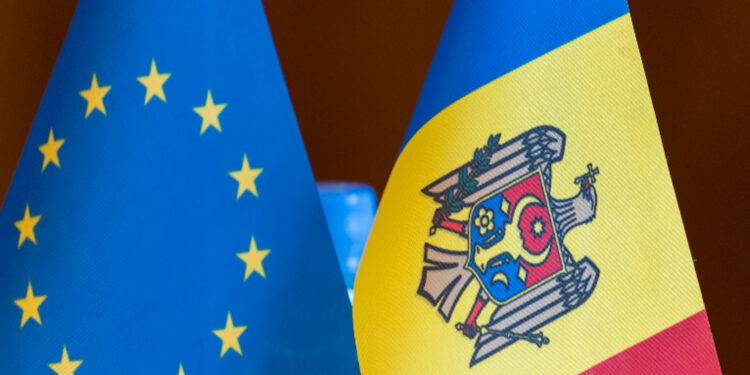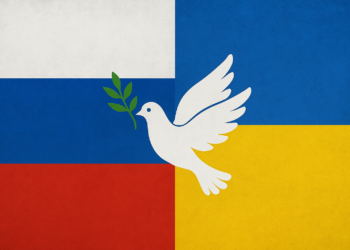by Miceál O’Hurley
CHIȘINĂU — Upon her meteoric rise to lead Moldova in her 2000 landslide election victory to become President, Maia Sandu, has deftly guided Moldova on a path of reform, liberalisation and reduction of reliance on Russia. Yesterday’s electoral win assured her policy of pursuing policies of greater self-reliance and integration with Europe, ultimately seeking European Union integration will continue. Sandu’s victory was achieved despite significant Russian interference with heightened concerns over Putin’s increased bellicose policies and actions towards Europe and NATO. During a 9 September speech at the European Parliament, Sandu pronounced her view that Sunday’s election would prove “the most consequential” in Moldova’s history.
A graduate of the Academy of Economic Studies of Moldova, Sandu furthered her education at the Academy of Administration in Chișinău before attending the John F. Kennedy School of Government at Harvard. She also served as a Senior Advisor at the World Bank before her astonishing 2000 Presidential victory. Her PAS party has maintained leadership in Moldova since, progressing their bid to join the EU. The EU, having once paired Moldova’s ascension to Ukraine’s and Georgia’s bid to join the bloc, has since deferred ascension progression in an increasingly pro-Russian Georgia and declined to de-couple Moldova’s ascension bid from that of Ukraine for fear of sending negative signals to Ukraine.
With in excess of 99% of all votes having been counted, Sandu’s Party of Action and Solidarity (PAS), has attained 50.20% of the votes cast with the anti-EU/pro-Russian Moldovan Patriotic Bloc tallying 24.28% of the vote.
The strong PAS turnout decidedly points the desire of Moldova to be a greater part of Europe. Notwithstanding the strong showing by PAS, the European Commission risks seeing Moldova lapse back into its pro-Russian past if it doesn’t provide a clearer path and timeline for Moldova to join the EU. Critics of Brussel’s ascension policies blame the lack of drive on the part of the EU for Georgia slipping away from Europe and tilting more authoritarian and pro-Russian after voters became dissatisfied with the pace of European integration. If Brussels doesn’t find a way of progressing Moldova’s integration into the EU after it achieved Candidate Status in 2022 fears persist that Moldovans will temper their enthusiasm for Europe. Despite the strong pro-EU turnout the electorate has expressed growing concern their efforts aren’t being rewarded by Brussels.
Sandu has continued to bring the electorate along with her policies and Sunday’s electoral victory has assured Moldova will continue on a robust pro-European footing for the time being. However, the EU’s gamble of keeping Moldova’s ascension bid tied to Ukraine risks undermining Sandu’s progress and is being used by the pro-Russian opposition to drive a wedge between Moldova’s European aspirations and its otherwise strong stance of solidarity with Ukraine.
Given significant signs of an international economic slowdown likely to cut deeply into projected 2026 economic growth along with the likelihood of a prolonged war in Ukraine, Moldova’s economy remains uniquely vulnerable. Delays in delivering on a more robust economy and pushing forward with reform efforts threatens to tarnish the shine of the PAS Party for the not-insignificant number of Moldovans who still live near the poverty level despite almost two decades of progress. Rising petrol and heating oil price increases largely driven by Russia cutting-off supplies to Moldova have created domestic headaches for Sandu and PAS. Attempts to create a replacement supply deal with Romania have largely failed to materialize to date. In its absence, criticism of Sandu’s failures to speed along reform and the economic strain on households has grown increasingly vocal yet still not cutting into support for her PAS party. Sandu has managed her position extremely well. Now she will need the EU to do its part in assisting in Moldova’s continued progress at an increased pace.
In the aftermath of the crushing electoral losses minority parties have pledged to stage mass protests highlighting the need for further economic growth. Claims the PAS has failed to deliver on key reforms in a key element of their protest. Igor Dodan, Sandu’s immediate predecessor as President and head of the pro-Russian Moldovan Patriotic Bloc pledged “disruption and violence” would follow if the Patriotic Bloc did not prevail at the ballot box. Mass violence has not been detected yet law enforcement personnel continue to monitor the situation closely.
In the run-up to the election, Moldova’s highest courts blocked the participation of the Heart of Moldova party. The pro-Russian party was barred from the election after Moldova’s courts ruled the party’s activities should be restricted for at least one year after hearing evidence of vote buying, bribery, illegal party financing and money laundering. Police raided multiple locations prior to balloting commencing after detecting sophisticated syndicates prepared to disrupt the democratic process. Russia denies it was engaged in assisting Heart of Moldova.
Russia’s soft-power cadre, the Russian Orthodox Church, did not remain aloof from election interference. The Moscow Patriarchate sponsored all-expense paid holidays for Moldovan Orthodox Church clergy to visit Russia’s holiest sites. Upon leaving Russia, clergy were handed pre-paid credit cards by un-known civilians. Reuters reports clergy were expected to promote pro-Russian candidates in exchange for the generosity of the Russian Orthodox Church. Unconfirmed reports indicate Moldovan clergy were given “talking points” and “sermons” while in Russia to assist them in encouraging Moldova’s faithful to reject the PAS party and EU policies and cast their votes for pro-Russian candidates. According to a report by TVP, “…almost 90 new parish-led channels have appeared in the past year in Moldova, according to Reuters analysis. Many repost identical content from a central feed, Sare şi Lumiña (Salt and Light), which pumps out messages about Europe corrupting Moldova’s morals and threatening its Orthodox faith”.
According to Reuters, one of the Moscow Patriarchate aligned Moldovan Orthodox Church clergy, “Father Mihai Bicu, a priest in the Orthodox Church in Moldova, boarded the flight back home from Moscow with his head spinning from the unfamiliar attention lavished on him”. As reported by Reuters, “Before they flew home, Bicu said he and many others in his group received debit cards issued by a Russian state bank which were handed to them in a monastery by non-church people whom he couldn’t identify. They were told money would be transferred to them soon after they returned to Moldova.
There was a service the priests needed to render in return: When receiving the cards, Bicu said his party was told that in exchange for the money – he received about $1,200 upon his return – they were expected to create social media channels for their parishes in Moldova to warn their flocks about the dangers of the pro-Western government’s pursuit of closer European integration”.
















































